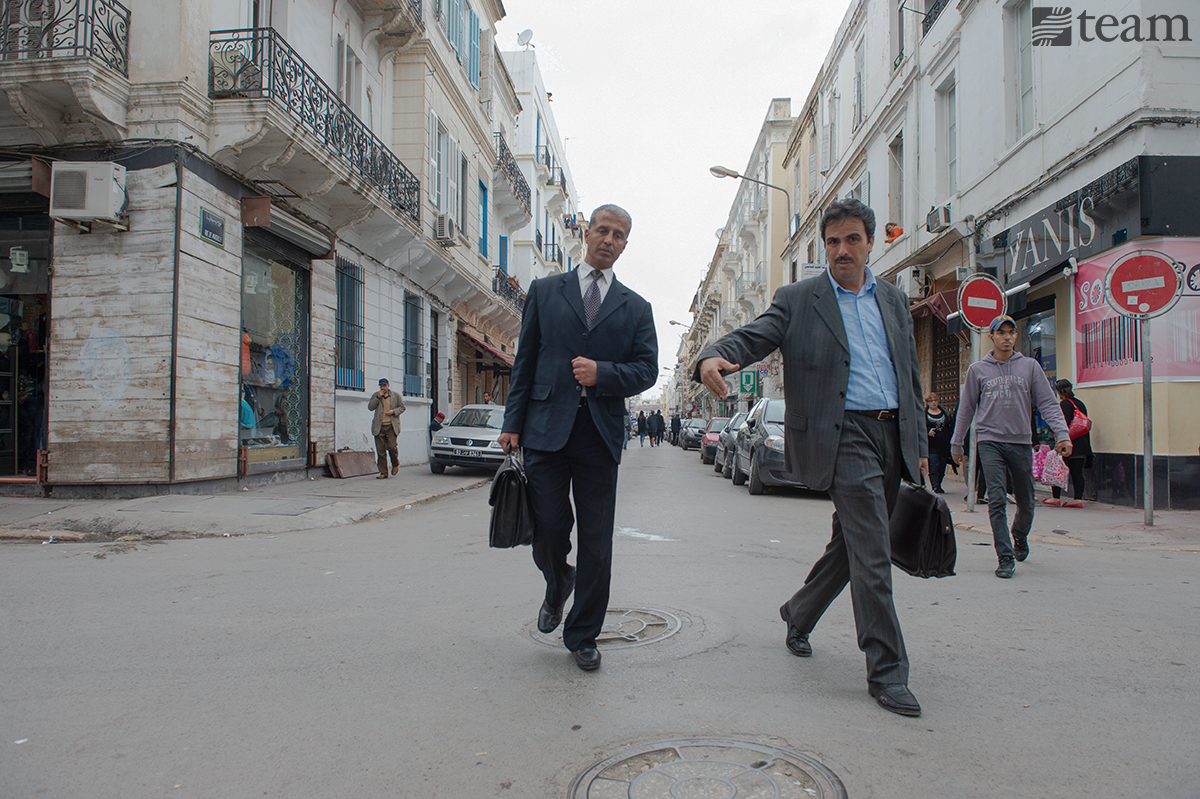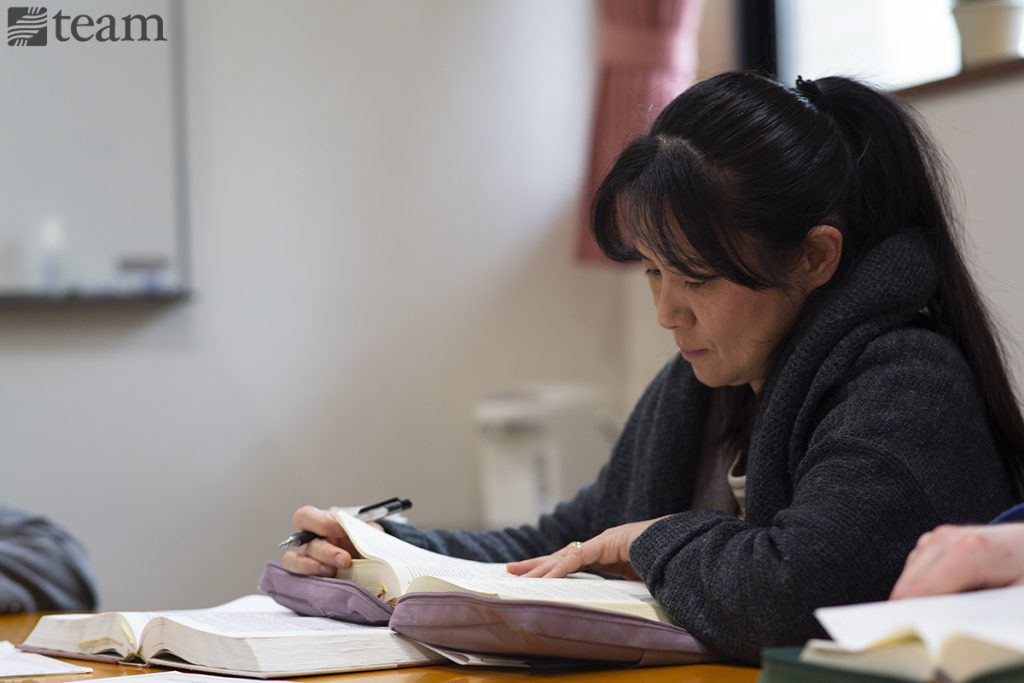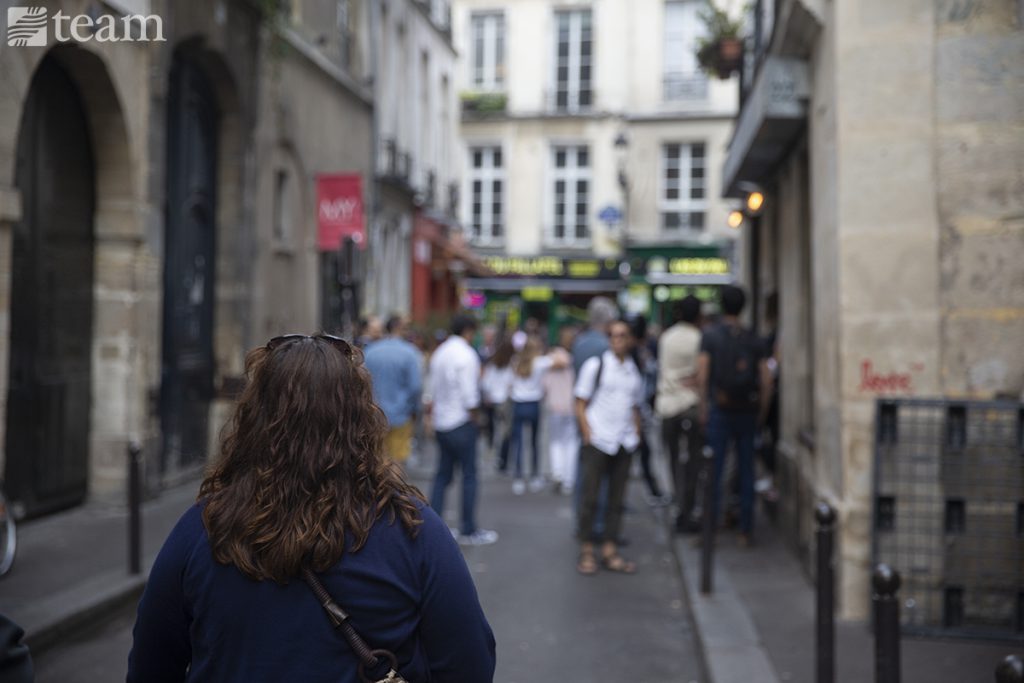
Ministry Updates
Discipling Christians to Live Their Faith at Work
February 11, 2020
by Heidi Chupp

“For the longest time, I thought my job … was to figure out how to help people transform their relationships.”
Henry*, a conflict management specialist, was taking a closer look at his role when he realized something:
“That’s not exactly my job.”
A Tool for Christian Professionals
Henry had been working through the Vocational Manifesto, a discipleship program designed for Christian professionals. The program helps people find areas of brokenness in their professions (e.g. poor financial stewardship) and then replace them with ethical practices.
Henry is a TEAM missionary serving in a professional role, in a nation where traditional Gospel presentations aren’t welcome.
There is a good deal of discipleship training, he says, for people who work in the Church. But there are far fewer resources for followers of Jesus in non-ministry professions.
Henry’s familiar with the Vocational Manifesto for a reason — he and his co-workers helped develop this tool. They have a deep desire to equip Christians to live their faith in the workplace, and be effective witnesses for Jesus.
“God is stirring people around the world in the marketplace to be disciple-makers in an unprecedented way,” he says. “We are called by God to support these people.”
Scripture vs. “Best Practices”
Henry began the program as a workshop, where groups take a deep dive into workplace practices and their underlying principles. The core of the tool, Henry says, is “examining our presuppositions and our operating principles, and applying Scripture to them.”
The overall goal? To empower people to understand God’s vision for their field of work, and then to equip them to follow that direction.
All along the way, participants stay close to Scripture. They seek out the eternal truths and principles found there, as they listen for direction from the Holy Spirit.
This is why Henry sees the inductive study method as an essential part of this tool.
The program walks participants through three stages: observation, interpretation and application.
Observe: Studying Scripture — and Your Career
Observation, says Henry, means taking time to step back and look thoughtfully and carefully.

Learning how to live your faith at work requires taking a step back and reflecting on what Scripture says about your job. It’s not always easy, but it is vital.
This could include a calling, a project or a common practice in their given field of work. A person might ask: What do I think about my job? What common practices do I see in my field?
When studying Scripture, a participant may note the historical context, the author and any other characters. They may ask: What is the author saying? What are the characters’ motivations?
Interpret: Identifying Brokenness
With interpretation, people begin to unwrap why they do what they do. There can be more to a so-called “best practice” than first meets the eye. A closer look may reveal a corrupt or flawed principle.
Interpretation probes at what’s behind a line of thinking, an activity or an assumption. A person may ask: Is this based on truth?
Professionals look for what Scripture has to say about these principles. They may ask: What does this mean for me personally? What does it mean for my area of work? How has God been speaking to me about my attitudes or my roles?
Apply: Bringing Faith to Work
Application is what makes the discipleship tool practical, relevant and applicable. It’s where Scripture connects with life.
A person may ask: If God is really doing this, if Scripture really does say this, if God has really made me this way — what’s in front of me and what’s next?
This is the point when participants figure out what it truly means to live their faith at work. They determine how they’ll replace unethical practices with godly practices. They also prepare answers for anyone who might be curious. In other words, as Henry puts it, “to craft a bridge to the Good News.”
‘Pass along the Redemption’
Henry’s team rolled out the Vocational Manifesto program in early 2019, and it’s already been applied in the fields of finance, communications, education and career coaching.
It’s adaptable and has been just as effective in individual and one-on-one adaptations.
After going through the program, one teacher began to regularly pray for her students. And she decided to incorporate truths from Scripture into the school’s monthly character trait emphasis.
After the first day of a two-day workshop, one participant shared with Henry that his whole way of thinking had shifted. “This changes everything,” he said. Another told Henry, “I didn’t know that I could find the answers myself.”
Henry is grateful for how the tool is being used and is excited about sharing it.
“We want to be able to pass along the redemption,” he says.

Henry’s Vocational Manifesto helps believers learn how to live out their faith in the workplace and then share this knowledge with others.
It Changed the Way He Worked
As Henry has discovered, these principles have been extremely beneficial in his own profession.
When he came to the realization that transformation was not his job, he’d already been studying related Scripture passages for a while.
He still remembers the day he was struck by this truth.
“All of a sudden a whole bunch of stuff made sense,” Henry says. “Transformation is not something we can bring about. It’s something that is done to us.”
This revelation changed the way he worked from that day onward.
“My role is to facilitate people turning to the Lord and then facing their conflict,” Henry explains. “That will open room for God to do whatever it is He wants to do.”
A Lifetime Process
Living and working God’s way, Henry and the team firmly believe, will ultimately meet people’s deepest needs and desires — from a personal calling to the running of a corporation, and everything in between.
Because following Jesus is a lifetime process, the Vocational Manifesto is designed as a tool that participants can return to over and over again.
“Now they realize this is about God’s leading in their life and their interaction with Scripture,” Henry says. “Now they can run with it.”
You can use your professional skills to preach Christ and disciple new believers. Talk to a missions coach to learn more about business as mission and other professional opportunities on the mission field.
Related articles


